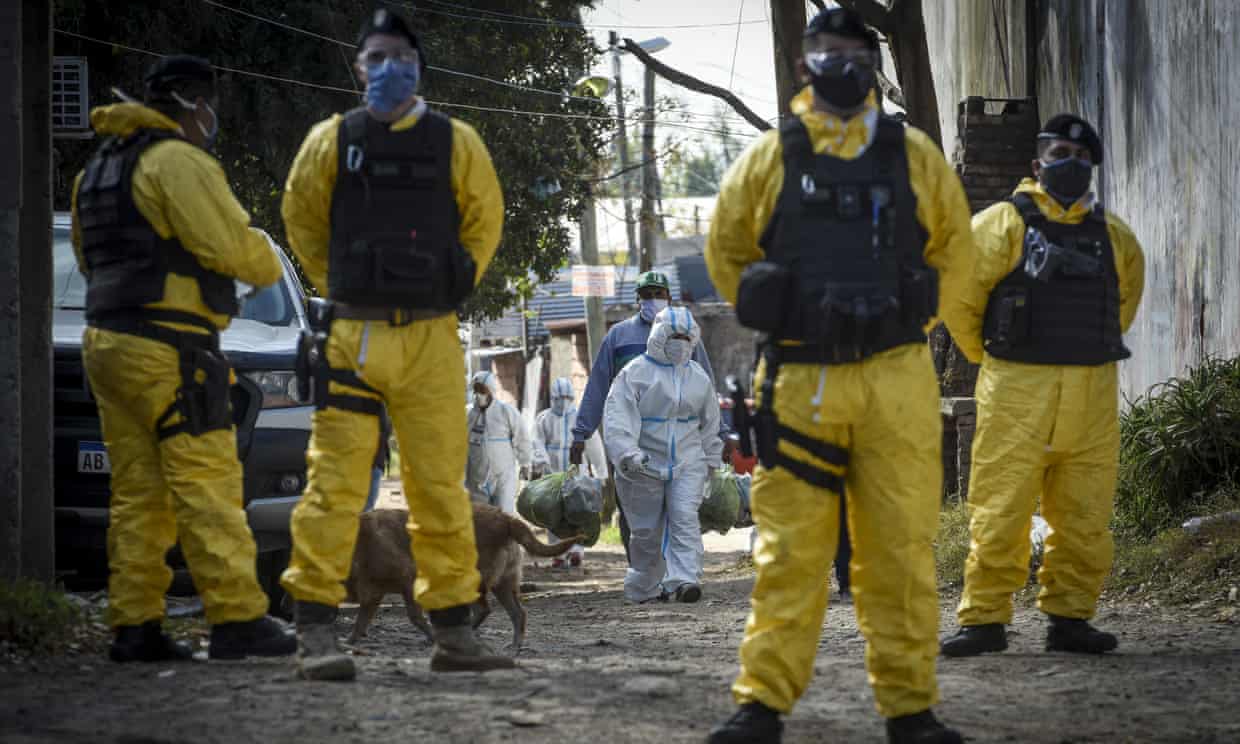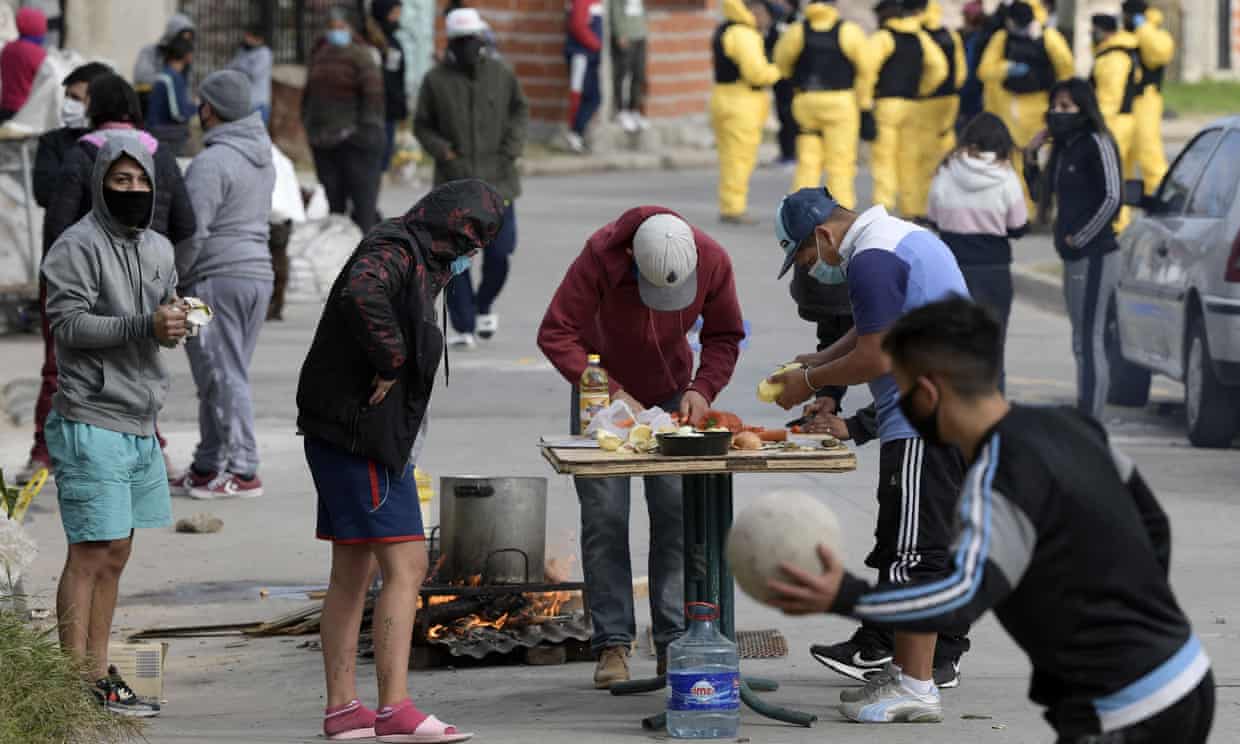
Argentina
Argentina cordons off virus-hit slum as critics decry 'ghettoes for poor people'
Drastic measures are being taken to contain the coronavirus in the Villa Azul area of Buenos Aires which has emerged as a hotspot
by Uki GoñiSecurity forces in Argentina have cordoned off one of the country’s poorest slums, preventing inhabitants from entering or leaving the neighbourhood after a surge of coronavirus cases.
Police officers erected barriers at the entrance to Villa Azul on the outskirts of Buenos Aires on Monday after widespread testing was launched in poorer districts.
By Wednesday, 174 of 301 tests carried out in Villa Azul had come back positive, and officials expressed concern that if the 4,000 or so inhabitants of the neighbourhood were allowed to move freely, they could spread the virus to other areas nearby.
“This is worse than a nuclear explosion,” said Sergio Berni, the security minister for
Buenos Aires, on Wednesday. “At least you can measure radioactivity in real time. With this [virus], it’s 14 days late.”
But the move was criticized by local activists and even members of Argentina’s leftwing government. “It looks like we are creating ghettoes for poor people,” said a junior minister for social development, Daniel Menéndez.
Daniel Gollán, health minister of Buenos Aires province, dismissed the charge. “We are working with the neighbourhood organisations, first to cut off the chain of contagion, and second to prevent people from leaving or entering because there is a much larger neighbourhood just next door.”
So far, no deaths have been reported in Villa Azul, Gollán said.
Intensive testing is also being carried out in Villa Itatí, an equally destitute area nearby, which is home to about 15,000 people.

Mayra Mendoza, the mayor of Quilmes, the district including Villa Azul, said: “It’s like a family: if one member tests positive, all the other members become close contacts. That is why we isolated the residents of Villa Azul, considering them close contacts of those who have been infected.”
“If this had happened in a gated community, we would have isolated it as well,” the mayor said.
As in other slum neighbourhoods or villas, most inhabitants of Villa Azul live in makeshift homes without public services, and the enforced isolation has left the population entirely dependent on deliveries of essential items by the army.
Valeria Mansilla, a 35-year-old mother of two who lives in Villa Azul, told TN
television: “Tuesday was a terrible day – very stressful – because they brought water and bottled gas [for heating] but only for part of the neighbourhood. They brought us powdered milk but we don’t have water.”
Teams of sanitary workers in white full-body protective gear have been going door to door in Villa Azul, testing, and carrying food delivered by army units.
Argentina’s villas often suffer from cramped living conditions and a lack of proper sewerage or running water, making it difficult for inhabitants to self-isolate or maintain proper hygiene.
“The first thing the pandemic has taught us, is that we live in an unfair country – and no one has the excuse of saying they didn’t know because we’ve all seen it,” said the country’s president, Alberto Fernández, in a speech about the situation in the country’s slums.
So far, most of Argentina’s 23 provinces have fared relatively well during the pandemic, reporting low numbers of new cases, thanks to a tough government lockdown implemented early in the pandemic.
But the Buenos Aires Metropolitan Area – which counts as a separate administrative district and includes nearly 2,000 villas – has seen a worrisome spike, and has accounted for 90% of the country’s new cases in recent weeks.
Argentina has 13,228 confirmed coronavirus cases and 490 deaths so far, with 600 new cases and 19 deaths reported on Tuesday – a sharp rise from early May when the number of daily new cases was in the low hundreds.
Security minister Berni said that the coronavirus situation in Buenos Aires slums would only get worse. “This is like the Titanic, we’ve got an iceberg ahead and we can chose to hit it head-on or from the side – but the crash is inevitable.”